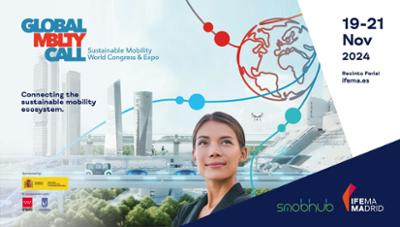

Mobility leaders agree on critical infrastructures for integrated mobility

Among the participants, Adif reminds that its priority is on the conventional and suburban network.
The president of the railway infrastructure manager, Adif, Luis Pedro Marco, explained this Tuesday that the company's priority is now focused on the development of the conventional and suburban network.
In the framework of the Global Mobility Call, organised by IFEMA MADRID and Smobhub, Marco remarked that among his priorities are also the completion of the European corridors, continuing to electrify lines and energy efficiency, as well as trying to shift freight from road to rail.
The president of Puertos del Estado, Álvaro Rodríguez, stressed that incidents, such as port closures, will become increasingly common due to the state of the sea as a consequence of climate change. For this reason, the ports have redundant contingency plans, as the times and demands for the delivery of goods are "hypertensive", although the logistics sector is demonstrating a high degree of flexibility.
For his part, the president of the public engineering company Ineco, Sergio Vázquez, pointed out that the effects of climate change "mean that the investment clock is running backwards" because they force huge amounts of funds to be allocated to the reconstruction of damage, rather than the construction of new infrastructures, as has been seen in Valencia.
In the same debate, the president of Aena, Maurici Lucena, highlighted the resilience of the airports, which have managed with quality the "unusual" recovery of air traffic after the pandemic, which was much more intense than expected.
Not only have the airports reacted successfully, but so have all the agents in the sector, among which Lucena mentioned the airlines, the handling services and all the suppliers.
Content provided by Agencia EFE





